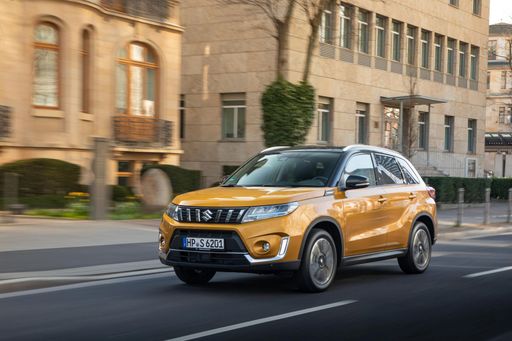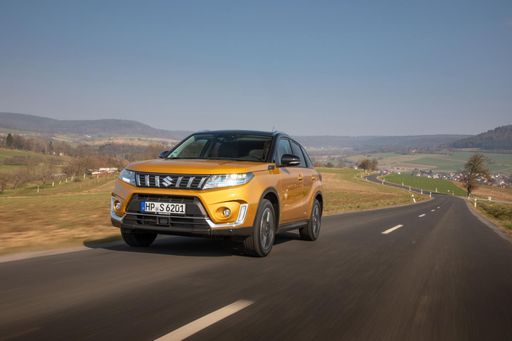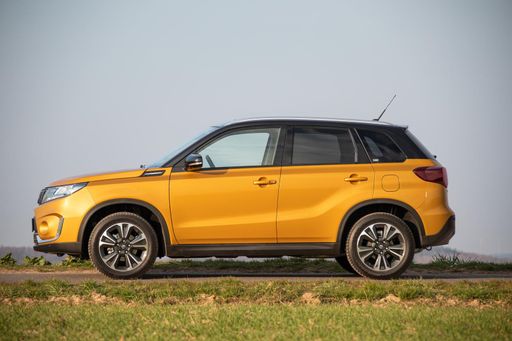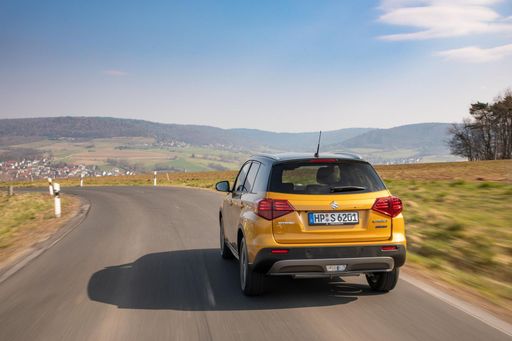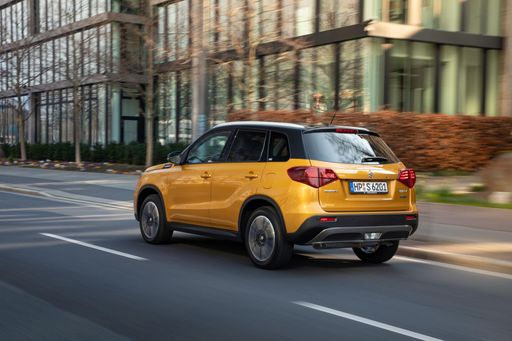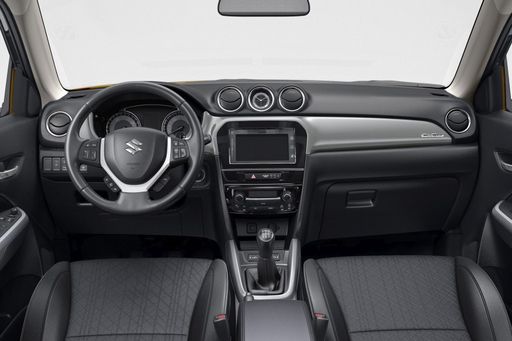Dacia Duster vs Suzuki Vitara - Differences and prices compared
Compare performance (158 HP vs 129 HP), boot space and price (16300 £ vs 23600 £ ) at a glance. Find out which car is the better choice for you – Dacia Duster or Suzuki Vitara?
Costs and Efficiency:
Price and efficiency are key factors when choosing a car – and this is often where the real differences emerge.
Dacia Duster has a decisively advantage in terms of price – it starts at 16300 £ , while the Suzuki Vitara costs 23600 £ . That’s a price difference of around 7294 £.
Fuel consumption also shows a difference: Dacia Duster manages with 4.70 L and is therefore barely noticeable more efficient than the Suzuki Vitara with 5 L. The difference is about 0.30 L per 100 km.
Engine and Performance:
Power, torque and acceleration are the classic benchmarks for car enthusiasts – and here, some clear differences start to show.
When it comes to engine power, the Dacia Duster has a slightly edge – offering 158 HP compared to 129 HP. That’s roughly 29 HP more horsepower.
In acceleration from 0 to 100 km/h, the Dacia Duster is minimal quicker – completing the sprint in 9.40 s, while the Suzuki Vitara takes 9.50 s. That’s about 0.10 s faster.
In terms of top speed, the Suzuki Vitara performs slight better – reaching 190 km/h, while the Dacia Duster tops out at 180 km/h. The difference is around 10 km/h.
There’s also a difference in torque: Suzuki Vitara pulls barely noticeable stronger with 235 Nm compared to 230 Nm. That’s about 5 Nm difference.
Space and Everyday Use:
Cabin size, boot volume and payload all play a role in everyday practicality. Here, comfort and flexibility make the difference.
Both vehicles offer seating for 5 people.
In curb weight, Suzuki Vitara is minimal lighter – 1255 kg compared to 1377 kg. The difference is around 122 kg.
In terms of boot space, the Dacia Duster offers noticeable more room – 517 L compared to 375 L. That’s a difference of about 142 L.
In maximum load capacity, the Dacia Duster performs evident better – up to 1609 L, which is about 489 L more than the Suzuki Vitara.
When it comes to payload, Dacia Duster to a small extent takes the win – 453 kg compared to 400 kg. That’s a difference of about 53 kg.
Who comes out on top?
Overall, the Dacia Duster shows itself to be outperforms in nearly all aspects and secures the title of DriveDuel Champion.
It convinces with the more balanced overall package and proves to be the more versatile choice for everyday use.
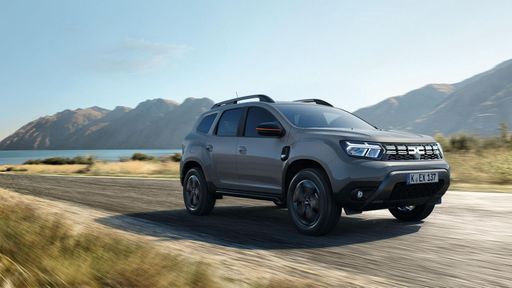
Dacia Duster
Costs and Consumption
View detailed analysis
Engine and Performance
View detailed analysis
Dimensions and Body
View detailed analysis
Dacia Duster
The Dacia Duster is a no-nonsense compact SUV that delivers rugged practicality and surprisingly comfortable everyday driving without fuss. It might not win any beauty contests, but its honest design, easy-to-live-with cabin and tough attitude make it a smart pick for buyers who want reliable transport without luxury frills.
details
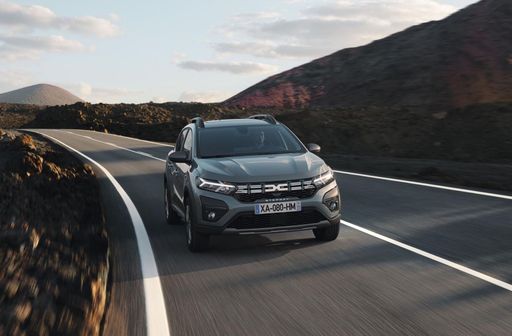
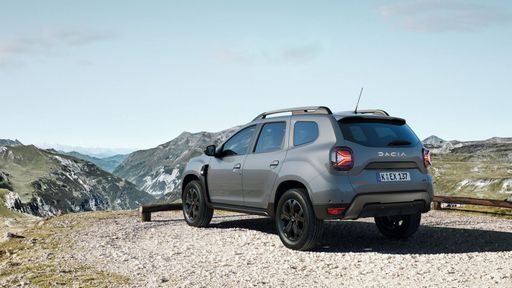
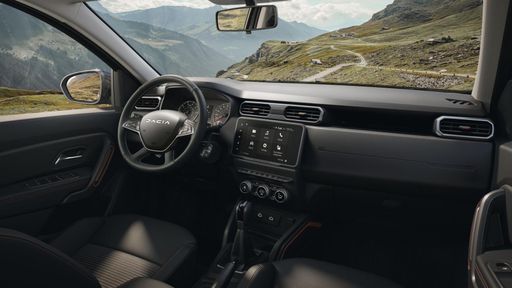
Costs and Consumption |
|
|---|---|
|
Price
16300 - 24900 £
|
Price
23600 - 30900 £
|
|
Consumption L/100km
4.7 - 7.5 L
|
Consumption L/100km
5 - 5.9 L
|
|
Consumption kWh/100km
-
|
Consumption kWh/100km
-
|
|
Electric Range
-
|
Electric Range
-
|
|
Battery Capacity
0.60 kWh
|
Battery Capacity
-
|
|
co2
107 - 124 g/km
|
co2
113 - 138 g/km
|
|
Fuel tank capacity
50 L
|
Fuel tank capacity
47 L
|
Dimensions and Body |
|
|---|---|
|
Body Type
SUV
|
Body Type
SUV
|
|
Seats
5
|
Seats
5
|
|
Doors
5
|
Doors
5
|
|
Curb weight
1377 - 1455 kg
|
Curb weight
1255 - 1395 kg
|
|
Trunk capacity
348 - 517 L
|
Trunk capacity
289 - 375 L
|
|
Length
4343 mm
|
Length
4185 mm
|
|
Width
1813 mm
|
Width
1775 mm
|
|
Height
1656 - 1659 mm
|
Height
1595 mm
|
|
Max trunk capacity
1414 - 1609 L
|
Max trunk capacity
1046 - 1120 L
|
|
Payload
450 - 453 kg
|
Payload
375 - 400 kg
|
Engine and Performance |
|
|---|---|
|
Engine Type
Petrol MHEV, Full Hybrid, LPG
|
Engine Type
Petrol MHEV, Full Hybrid
|
|
Transmission
Manuel, Automatic
|
Transmission
Manuel, Automatic
|
|
Transmission Detail
Manual Gearbox, Automated Manual, Dual-Clutch Automatic
|
Transmission Detail
Manual Gearbox, Automated Manual, Automatic Gearbox
|
|
Drive Type
Front-Wheel Drive, All-Wheel Drive
|
Drive Type
Front-Wheel Drive, All-Wheel Drive
|
|
Power HP
115 - 158 HP
|
Power HP
110 - 129 HP
|
|
Acceleration 0-100km/h
9.4 - 11.6 s
|
Acceleration 0-100km/h
9.5 - 12.7 s
|
|
Max Speed
180 km/h
|
Max Speed
180 - 190 km/h
|
|
Torque
190 - 230 Nm
|
Torque
235 Nm
|
|
Number of Cylinders
3 - 4
|
Number of Cylinders
4
|
|
Power kW
84 - 116 kW
|
Power kW
81 - 95 kW
|
|
Engine capacity
1199 - 1789 cm3
|
Engine capacity
1373 - 1462 cm3
|
General |
|
|---|---|
|
Model Year
2025
|
Model Year
2024 - 2025
|
|
CO2 Efficiency Class
D, C
|
CO2 Efficiency Class
D, C, E
|
|
Brand
Dacia
|
Brand
Suzuki
|
What drivetrain options does the Dacia Duster have?
The Dacia Duster is offered with Front-Wheel Drive or All-Wheel Drive.





